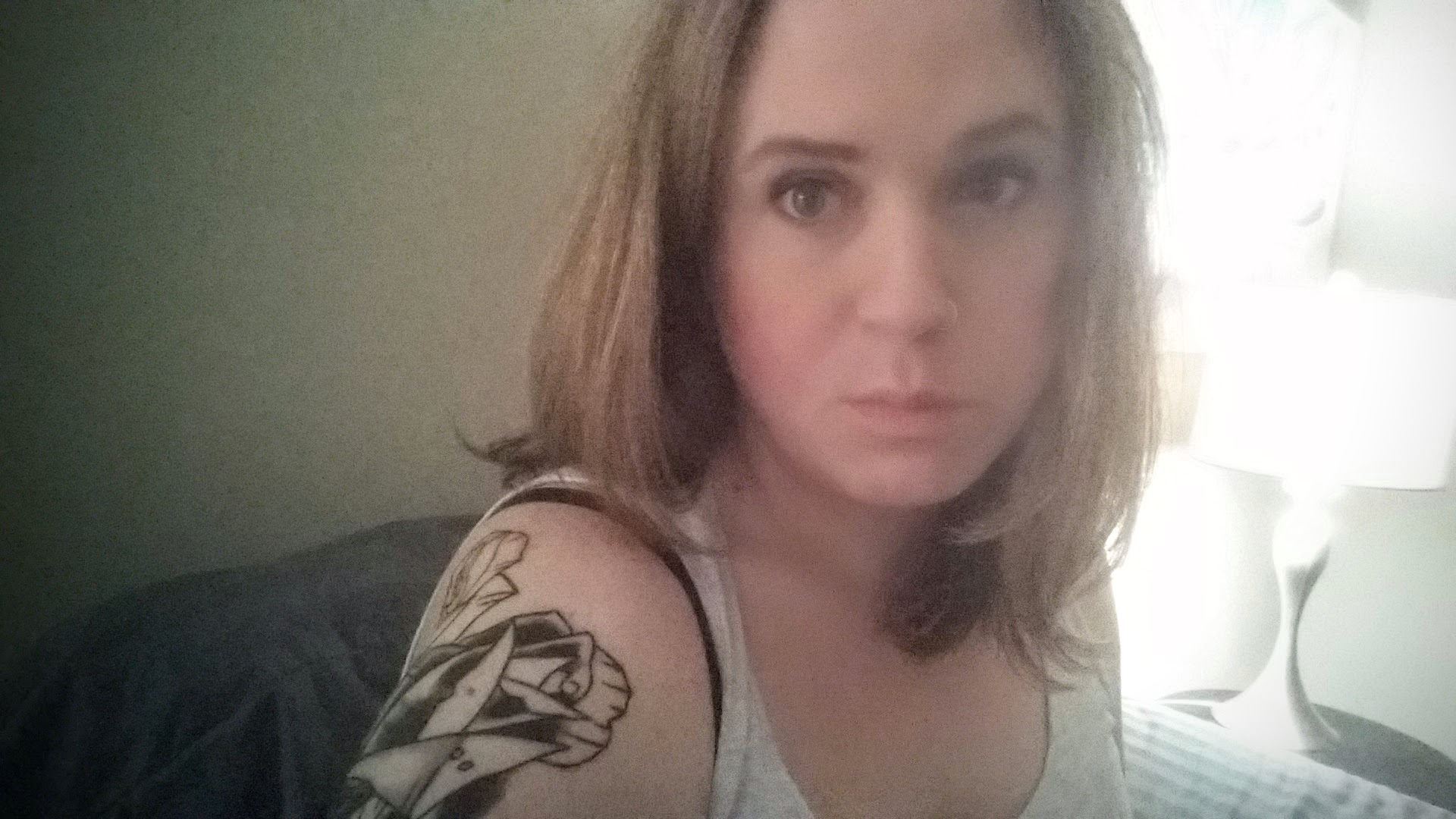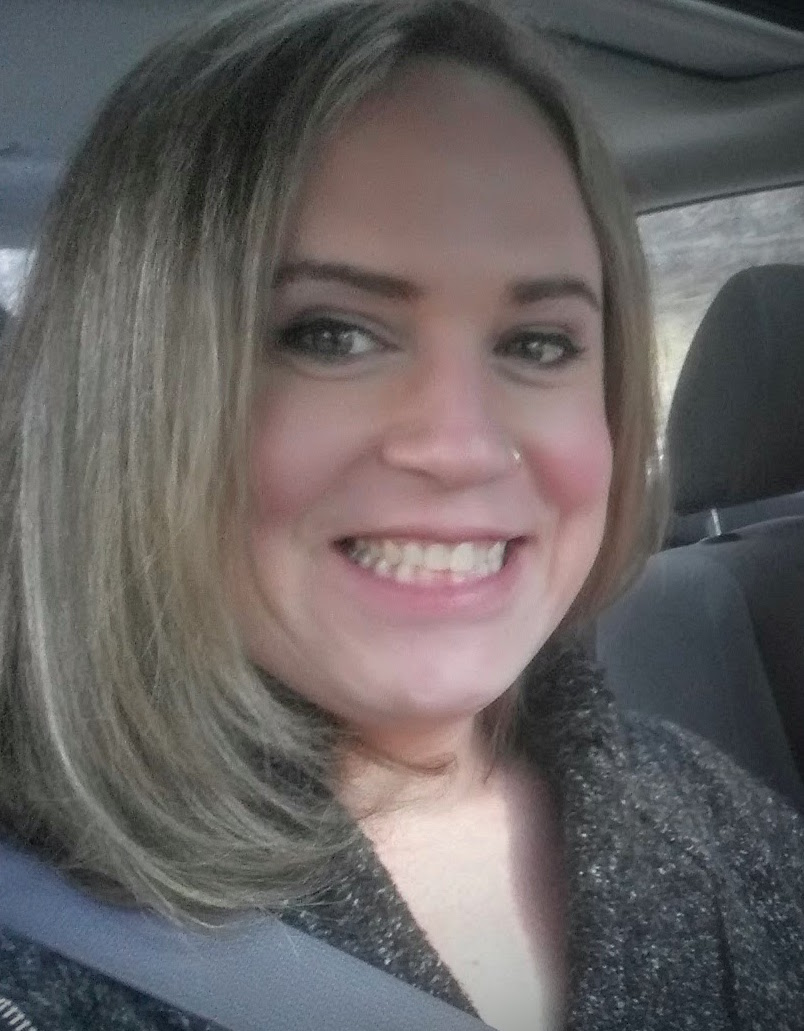This transgender woman soared into a brave new world and isn’t looking back.
This is part of a story series about the lives of transgender people. Read the introduction here.
 The day Ellie Webster decided to begin transitioning from the male body she was assigned at birth, she knew it was a leap of faith. But it was a leap she was finally ready to take after many false starts. It was a leap into the unknown, yet she knew it was the only way to live her life to the fullest.
The day Ellie Webster decided to begin transitioning from the male body she was assigned at birth, she knew it was a leap of faith. But it was a leap she was finally ready to take after many false starts. It was a leap into the unknown, yet she knew it was the only way to live her life to the fullest.
Before Webster took her first dose of hormones — just 12 hours shy of her 33rd birthday — she reflected on the moment.
I don’t know who had more wonder as to how the world was going to be different in a short while: me or the first astronauts. Who can tell you where you’re going on this adventure? No one has ever been there.
She says this, in part, to acknowledge that her story is unique to her. Like every human being — transgender or not — her experience is hers and hers alone.
For many years, Webster didn’t have words for what she was feeling. She remembers the kids in her mother’s in-home daycare playing dress-up when she was about five years old. She joined in, donning women’s clothes, with a strong sense that she “just fit in” with the girls.
“The family thought I was cute but it was like, ‘Let’s not do that again,’” she says. “It began to click that it wasn’t acceptable.”
But Webster continued to identify more with girls than boys in her school, feeling that she was forced to hang out with the boys and adhere to gender norms. With no outlet for her emotions, she began internalizing her feelings.
In her early teens, Webster began searching for information on the internet, and eventually she found the word “transgender” to describe her internal conflict. But she felt sure her family wouldn’t be accepting.
“Being transgender felt like an impossible reality,” Webster says.
By the time she was 19, Webster had found some online forums where she could talk to transgender women. But there still wasn’t much support available, she says.
I had no resources. I couldn’t find therapists or get hormones. Even if I did, what was going to happen to me? I’d be a freak of nature. I wouldn’t be able to get a job, I’d lose the independence I’d just gained by moving out on my own. I’d be in a box alone for the rest of my life. That’s what society told me so that’s what was in my head.
Webster says her gender dysphoria — a medical diagnosis of strong, persistent feelings of identification with the opposite gender and discomfort with one’s own assigned sex — was creating some depression and frustration. In her early 20s, she finally reached what she describes as a breaking point.
“I literally posted on a website, ‘I need help. I need someone to talk to about this who knows what’s going on,’” Webster explains.
Fortunately, someone she describes as “a lovely trans woman” reached out and gave Webster the phone number of a therapist. She started her transition journey then, although she would make five or six attempts before she finally decided to take the leap.
“I never got to the point where I’d get hormones,” she says. “I’d talk about it, then I’d chop off all my hair and grow a beard. I’d run away and try to forget I’d ever talked about it.”
At one point, Webster had actually ordered her hormones, and then took a step to ensure she wouldn’t go through with transitioning: She married her girlfriend at the time. “If I can’t fix myself,” she told herself, “I’ll fix something else.”
That’s how Webster lived for the next couple of years, but it was soon obvious that the situation was untenable. The marriage ended for reasons unrelated to Webster’s gender identity.
It was then that Webster realized there was no turning back. She made an active choice to transition for good, motivated by a profound realization.
I’d done everything I could to run away from this, but it would come back harder every time. I was wasting my life, and the longer I waited the less time I’d have to live as me.
My therapist said to me, ‘Let’s say you live to be 96 and in your last moments, you look at what your life has been. How does that look if you transition and if you don’t? Imagine all the adventures you’ll go on if you do, and then think about what will happen if you don’t.’
I broke down, imagining all the things I wouldn’t do if I didn’t transition. I didn’t want to be that person. Despite all the hurdles, I was going to make it happen. I didn’t care if I got fired or my family shunned me. I had to do this.
Webster began her Hormone Replacement Therapy (HRT) in May 2015, and six months later she went out in public for the first time presenting as female. Until then, she’d only presented as female in safe spaces, such as Transgender Advocacy Project (TAP) meetings. But she had a friend help her with her makeup — something she felt ill-prepared for at the time — and they went out together so Webster could express her true self.
“It was nerve-racking. For my safety, I felt so worried about ‘passing,’” she says, using the term that describes a trans person being perceived as having been born with the gender they identify with. “But I got out there and it didn’t matter. I felt so comfortable in my own skin for the first time.”
Within a month, Webster decided to come out at work, even though she wasn’t ready to present as female full time yet. People were already sensing something about her was different, so the time felt right. An information technology (IT) systems administrator, Webster was gratified that the response to her coming-out letter was completely positive.
Not long after, Webster presented in public by herself for the first time. She went into a makeup store and then into a video game store, and was unquestionably perceived as female. That was a significant turning point.
The more I had denied my identity, the more scared and awkward I got. The stares and whispers got loud. I would walk into a restaurant and people were nodding — I’m was still presenting as a boy and it was loud. People were realizing something was going on.
When I started presenting as female, the noise stopped. All of a sudden it made sense to see me presenting as female. What they saw before was what they thought was a female trying to be a male. That’s why it went quiet when I started presenting as female full time.
After her first outing, Webster told the woman she was dating that she was going to go out presenting as female on their next date. Her girlfriend was not only accepting — she helped Webster shop for a new wardrobe. The next day, Webster showed up at work presenting as female, and no one batted an eye. If anything, presenting her authentic self eased the way for Webster, especially with her girlfriend.
She said the moment she really fell for me was when I opened the door that first day I presented as female. She said, ‘I’d never seen anyone so happy.’ We are so open with each other, we talk about everything. I think my vulnerability has helped her open up as well.
Most of her family has been fully accepting, too. Her father and stepmother are struggling a bit, she says, but Webster understands that it may take some time.
“We still have a relationship, but it’s not what it used to be,” she says. “It hurts, but just as I had to work through my own internal issues, people you come out to have to work though theirs.”
When she came out, Webster decided to be completely open about everything, even if it meant facing discrimination. Fortunately, that hasn’t happened.
 Because Webster lives outside the Grand Rapids, Mich., city limits — where she would be protected by the city’s non-discrimination ordinance, protections that aren’t available yet to all LGBT Michiganders under the state’s current Elliott-Larsen Civil Rights Act — she knew that coming out to her landlord could get her evicted. But she told them anyway. Their response? “If someone gives you a hard time, we’ll evict them,” they told her.
Because Webster lives outside the Grand Rapids, Mich., city limits — where she would be protected by the city’s non-discrimination ordinance, protections that aren’t available yet to all LGBT Michiganders under the state’s current Elliott-Larsen Civil Rights Act — she knew that coming out to her landlord could get her evicted. But she told them anyway. Their response? “If someone gives you a hard time, we’ll evict them,” they told her.
Webster admits that her transition and coming out has been relatively easy. As she says, “HRT has been good to me.” She already had soft features before she started transitioning, so people really don’t question her gender.
But Webster is quick to recognize that as a privilege many trans people don’t have — a reality she hopes will change over time. She wants transgender people to have the same acceptance as cisgender people, who identify with the gender they were assigned at birth.
When I go out, I can just blend in. Not every transgender person has that privilege, even if they have surgery. Maybe they’re not built within that typical female spectrum, which isn’t a problem with them — it’s a problem with society. Just as cisgender people are allowed to exist in all shapes and sizes, trans people should be, too.
Webster knows it will take time for society to change, just as it took her time to understand her authentic self. Instead of having regrets about waiting to transition, though, she is excited about the future and is living out loud every day.
“What an adventure this last year has been!” she says. “I’m so happy to finally be me, and I wouldn’t trade it for anything.”
Read all the stories in this series HERE.
[Photos courtesy of Ellie Webster.]



